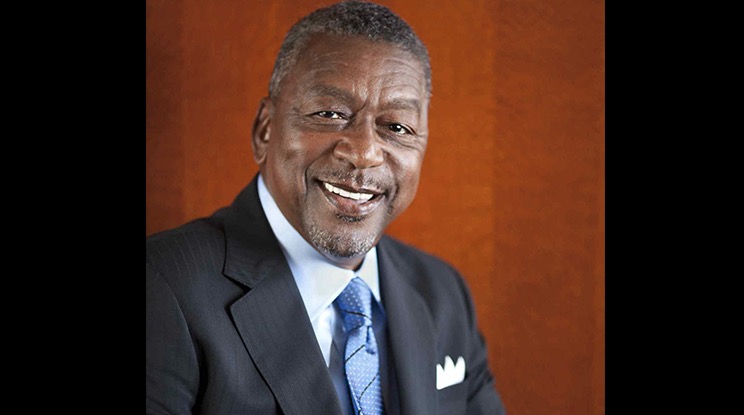The Five Spot: Robert Johnson

The smarter way to stay on top of broadcasting and cable industry. Sign up below
You are now subscribed
Your newsletter sign-up was successful
Robert Johnson in 1979 stepped into a then-nascent cable television business to launch Black Entertainment Television, an entertainment network targeted to African-American viewers. Nearly four decades later, Johnson is once again looking to break ground on an emerging platform — subscription video-on-demand — with Urban Movie Channel, a streaming service with first-run movies and event programming targeted to African-Americans.
Noting that African-Americans spend about $2 billion in subscriptions for premium services such as HBO and Showtime, Johnson said he believes the digital environment can provide an outlet for quality, targeted content not offered by traditional cable networks and free of advertiser and distributor censorship.
Johnson spoke with Multichannel News programming editor R. Thomas Umstead about UMC and his vision for the digital future of multicultural-themed programming.
Why did you decide to get back into video content distribution with UMC? You know my background, obviously, and I’ve always believed two to three things about this business. One is that there’s tremendous demand by African-American consumers for content. The second thing is there’s tremendous talent in the African-American community that wants to tell stories that the current system does not always tell. Third is the need for capital. So we’re doing essentially the same thing we did with BET with over-the-top streaming by creating a service that was first out the door with capital behind us.
Is it easier today to market and promote a service like UMC to African-American audiences than it was when you were starting BET? When I started BET, if I wanted to reach our target audience I had to go to black radio, or Ebony and Jet magazine and local newspapers. In this new ecosystem, you get a talent who has a chance to promote their own programming — they have thousands of followers across multimedia platforms. They’ve become their own advertising arm and we get the benefit of that because of the reality of the relationship. They get exposure; we get a promotion.
How have OTT services like UMC, Netflix and Hulu changed the dynamics of content creation and distribution? What the industry is experiencing is exactly what I hoped would happen: Many creative people who are basically underemployed for the amazing talent that they have are getting absolutely frustrated with a system that simply does not give them the opportunity to tell their story. I keep coming back to the business model ecosystem [as] absolutely the key to success of over-the-top streaming channels.
Are millennials in particular seeking out content on digital that reflects their images and culture? Clearly the young millennial generation is moving more and more to social media and digital, and we think again that when they get that differentiation they will watch it. We saw that with Fox’s Empire — that was clearly differentiated. The same thing with Power on Starz and how that is playing out.
The smarter way to stay on top of broadcasting and cable industry. Sign up below
What do you see for BET going forward? I am absolutely convinced that under the management and leadership of BET as well as of Viacom, which clearly sees BET as a big part of Viacom’s future, the network will thrive. As long as I’m around — and pretty much as long as just about anybody is around — there’s going to be a Black Entertainment Television, and it’s going to serve its audience and be part of the media fabric. I’m essentially as proud of that legacy as I can be.
R. Thomas Umstead serves as senior content producer, programming for Multichannel News, Broadcasting + Cable and Next TV. During his more than 30-year career as a print and online journalist, Umstead has written articles on a variety of subjects ranging from TV technology, marketing and sports production to content distribution and development. He has provided expert commentary on television issues and trends for such TV, print, radio and streaming outlets as Fox News, CNBC, the Today show, USA Today, The New York Times and National Public Radio. Umstead has also filmed, produced and edited more than 100 original video interviews, profiles and news reports featuring key cable television executives as well as entertainers and celebrity personalities.

